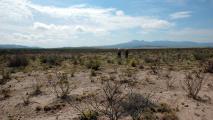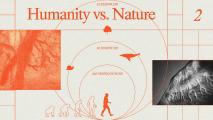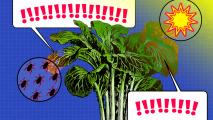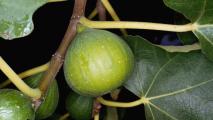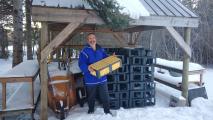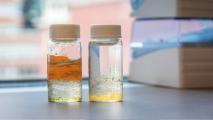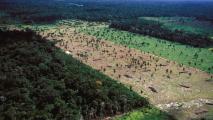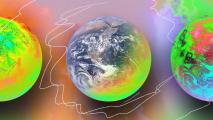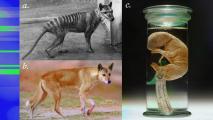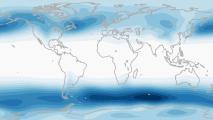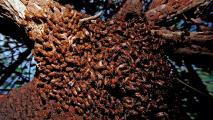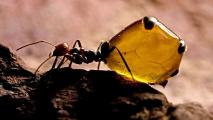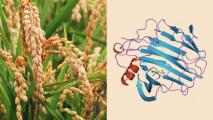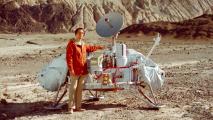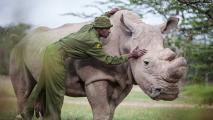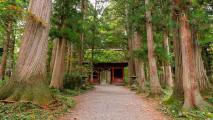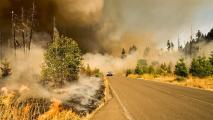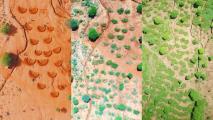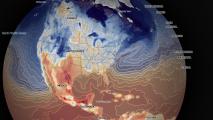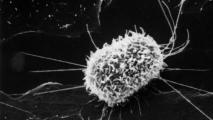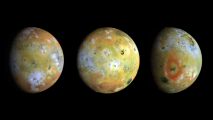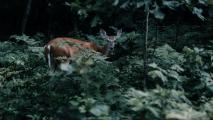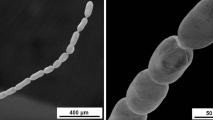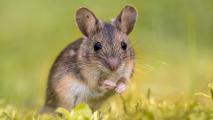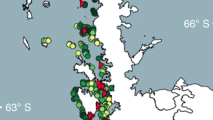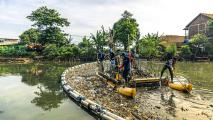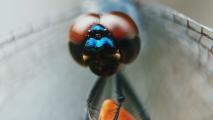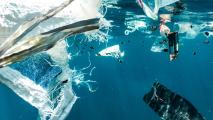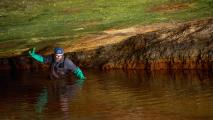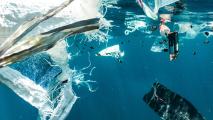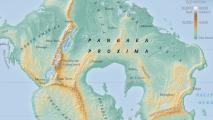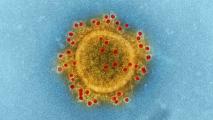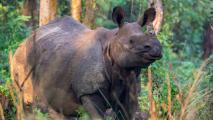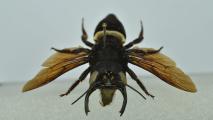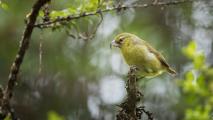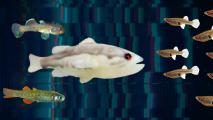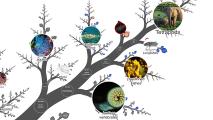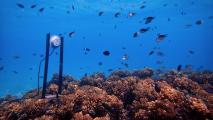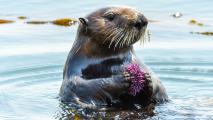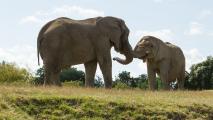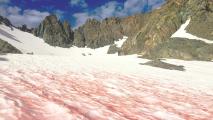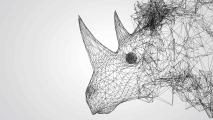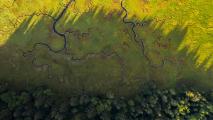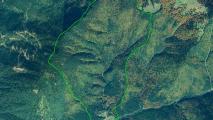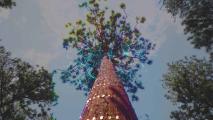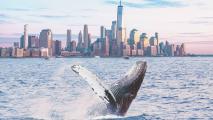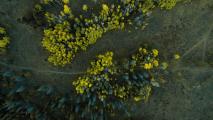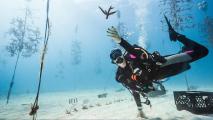Field: Ecosystems
The West needs more water. This Nobel winner may have the answer.
Paul Migrom has an Emmy, a Nobel, and a successful company. There’s one more big problem on the to-do list.
Why harmony with nature is a myth
Slowing growth and limiting development isn’t living in harmony with nature—it is surrendering in a battle.
Plant sensors could act as an early warning system for farmers
Using sensors made from carbon nanotubes, researchers discovered signals that help plants respond to stresses like heat, light, or attack.
Desalination could avert one of the top 10 threats facing the world
Desalination — changing seawater into safe drinking water — could avert a crisis. Here's how to make it less costly and labor-intensive.
Artificial reef designed by MIT engineers could protect marine life, reduce storm damage
An MIT team is hoping to fortify coastlines with “architected” reefs engineered to mimic the wave-buffering effects of natural reefs.
Your garden’s 2024 “hardiness zone” could change, thanks to warming climates
Hotter summers and warmer winters are changing the types of plants we'll be able to successfully grow. Here's how to adapt.
Scientists are deep-freezing corals to repopulate the ocean
Healthy corals could disappear by the 2030s if climate change is not curbed, so scientists are deep freezing specimens.
Moving trees north to save the forests
Scientists are exploring how to adapt forests for climate change, transitioning them to a warmer future by planting new southern seedlings.
Why the US has artificial reefs made from sunken ships and voting machines
Not all underwater reefs are made of coral − there are also artificial reefs made of sunken ships, radio towers, and more.
Flowers grown floating on polluted waterways can help clean up nutrient runoff and turn a profit
Flowers grown on inexpensive floating platforms can help clean polluted waterways and even make a profit from cut flower sales.
How potatoes can keep an eye on nuclear radiation
Plants scientists are researching how fields of genetically modified potato plants could detect radiation.
A new way to swiftly eliminate micropollutants from water
Scientists at MIT are using zwitterionic hydrogels to sustainably capture both organic and inorganic micropollutants from water.
Does it work to pay people not to cut the forest?
Evidence that paying people to save trees, preserve ecosystems and reduce carbon emissions is scarce. But it can succeed if it’s done right.
How much CO2 can the world emit while keeping warming below 1.5°C and 2°C?
Researchers estimate how much more CO2 we can emit to keep temperatures below 1.5°C and 2°C to combat climate change.
Plants are likely to absorb more CO₂ in a changing climate than we thought – here’s why
New research shows that plants might take up more CO₂ than previously thought, but still can't do the heavy lifting to stop climate change.
Why this startup is creating edible oil from sawdust
ÄIO's main goal is to replace palm oil with oil upcycled from low-value industry organics in order to prevent further deforestation.
CRISPR is helping “de-extinct” the Tasmanian tiger
"De-extinction” researchers believe they might be able resurrect the Tasmanian tiger and restore ecological balance in Australia.
What Arizona and other drought-ridden states can learn from Israel’s pioneering water strategy
Israel’s approach to desalination offers insights that Arizona would do well to consider for managing droughts.
Why astronomers are excited about carbon dioxide and methane in the atmosphere of an alien world
Scientists reported chemical traces in the atmosphere of planet K2-18b, including a substance which on Earth is only produced by living things.
Reflecting sunlight to cool the planet will cause other global changes
MIT researchers find that extratropical storm tracks would change significantly with solar geoengineering efforts.
The underappreciated benefits of wild bees
The plight of wild bees has largely been overshadowed by concern about threats to domestic bees. Many people don't even know the difference.
This “living material” self-destructs and cleans up polluted water
A 3D-printed “living material” packed with genetically engineered bacteria could be an eco-friendly way to clean up polluted water.
Australian ant honey inhibits tough pathogens, new research shows
Honeypot ant honey may help develop our arsenal of effective antibacterial and antifungal treatments, which are increasingly vital.
2023 report on Great Barrier Reef: “The story is more complicated than the headlines.”
Yes, the Great Barrier Reef has rebounded beyond our expectations. But now the heat is back on and it's time to act.
Scientists bioengineer plants to have an animal-like immune system
Scientists have bioengineered a hybrid molecule by fusing components from an animal's and a plant's adaptive immune system.
NASA may have accidentally killed the only life we ever found on Mars 50 years ago
Life may have been discovered on Mars almost 50 years ago, but it could have been unintentionally destroyed.
Northern white rhinos are set for extinction. Only a technological moonshot can save them.
Project BioRescue aims to create the reproductive technology necessary to resurrect the northern white rhino. But time is running out.
These giant viruses are unlike any we’ve ever seen before
Scientists have discovered a variety of “giant viruses” unlike any ever seen before in Massachusetts’ Harvard Forest
By 2040, 60% of “meat” won’t come from dead animals
"Novel vegan meat alternatives" and cultured meat will likely become competitors to traditional meat products, the report says.
World’s oldest trees reveal the largest solar storm in history
One of the greatest threats to all our infrastructure is a solar storm, which has the potential to cause a multi-trillion dollar disaster.
A comet impact 13,000 years ago might have wiped out megafauna
Researchers note a "synchronicity" of geochemical signals suggesting that fragments of a comet struck Earth approximately 13,000 years ago.
How years of fighting every wildfire helped fuel the Western megafires of today
The current approach to fire management poses unnecessarily high stakes for forests. Here's why fighting every fire does more harm than good.
Desertification is destroying fertile land. Here’s how we’re fighting it.
Desertification is destroying once-fertile land at an alarming rate, but desert greening techniques are making degraded soil bloom again.
Here’s how growing plants on the Moon could benefit Earth
Making plants grow on the Moon could be instrumental in helping gardens to grow greener on Earth in the face of climate change.
AI is going to revolutionize the weather forecast
A tech startup in San Francisco is going to change how the world sees the weather.
Did life evolve more than once? Researchers are closing in on an answer
Current scientific consensus is that life emerged from non-living molecules in a process called abiogenesis. But if life emerged once, why not more times?
Supercomputers revealed giant “pillars of heat” funnelling diamonds upwards from deep within Earth
Understanding Earth’s internal history can be used to target mineral reserves – not only diamonds, but also crucial minerals.
Nature-based solutions are cleaning up cities
Nature-based solutions can be radical — think covering a highway with a park — but offer meaningful ways to address pollution.
The ocean “twilight zone” could store vast amounts of carbon captured from the atmosphere
There may be ways to enhance natural processes so the ocean pulls more carbon out of the atmosphere to help slow climate change.
Self-sufficient “microgrids” could save you from power grid emergencies
Centralized power systems rely on large power plants and transmission grids, but microgrids are self-sufficient.
How to pull carbon dioxide out of seawater
Researchers have found an effective new method for removing carbon dioxide from salt water in the ocean.
How Singapore’s “Garden City” vision fused nature and urban design like nowhere else
Singapore's green thumb developed from its recent history. Its small size meant that staying independent required protecting its resources.
Coastal cities created 40 Manhattans’ worth of new land since 2000
The first global assessment of land reclamation found that people have added 900 square miles of land to Earth’s coasts this century.
Strange life forms create an “alien” ecosystem in an abandoned uranium mine
Scientists have found diverse life forms dwelling in an abandoned, flooded uranium mine in Germany, creating an "alien" ecosystem.
Extreme heat is changing habits of daily life
Researchers found that extreme temperatures actually have a much larger effect on human activity than the previous estimations.
Jupiter’s hot “pizza moon” may contain life
Jupiter's moon Io is thought to be inhospitable, but new data suggests life could exist underground, perhaps in lava tubes.
Pricing groundwater will help solve California’s water problems
The state’s Sustainable Groundwater Management Act is a great opportunity — but only if it goes far enough.
Rewilding: letting nature do its own thing
Rewilding organisations in Europe are reintroducing lost species including the Eurasian lynx and Marsican brown bear.
Mega bacteria that can be seen with naked eye shakes up the field of microbiology
A newly discovered species of bacteria is so large that it can be seen with the naked eye. It also contains a DNA-containing nucleus.
New CRISPR tech makes it possible to wipe out invasive mice
Australian researchers have developed a gene drive that renders female mice infertile, opening the door to a new type of pest control.
Wild mammals are making a comeback in Europe thanks to conservation efforts
Many large mammals in Europe were close to extinction. New data shows us that the continent’s mammal populations are flourishing again.
Meanwhile, Antarctica’s snow is turning green
On the Antarctic Peninsula, so-called snow algae are turning the snow green, which could lay the groundwork for a whole new ecosystem.
This floating fence can catch plastic waste before it hits the sea
The majority of oceanic plastic waste comes from rivers and coasts. Floating fences may help stop it at the source.
Bad news for the 2022 hurricane season: The Loop Current is coming
The Loop Current, a fueler of monster storms, is looking a lot like it did in 2005, the year of hurricane Katrina.
Magic mushrooms evolved to scramble insect brains, send them on wild, scary trips
Researchers discovered that the way fungi independently gained the ability to produce psilocybin is because of horizontal gene transfer.
Where does the plastic in our oceans come from?
Which countries and rivers emit the most plastic to the ocean? What does this mean for solutions to tackle plastic pollution?
Turning Appalachia’s contaminated creek water into art
Acid mine drainage turns thousands of creeks orange in Appalachia. True Pigments is pulling that pollution to create paint pigments.
Why haven’t plastic-eating bacteria fixed the plastic problem yet?
Texas scientists have created an enzyme that could keep billions of pounds of plastic out of landfills.
What the world will look like in the year 250,002,018
On Pangaea Proxima, the supercontinent of the future, Cape Town and Mexico City are just a day’s drive apart.
WWF report highlights tiger population gains for the Year of the Tiger
The global tiger population is finally increasing after more than a century of gradual decline, a new study from WWF reveals.
Researchers identified over 5,500 new viruses in the ocean
These discoveries help scientists better understand not only the evolutionary history of viruses but also the evolution of life on Earth.
One-horned rhino population increases by 200 in four years
A census of the one-horned rhino population at Kaziranga National Park found that the vulnerable species is on the rise.
World’s largest bee, thought to be extinct, found in Indonesia
The giant bee was first discovered in 1859, but since has only officially sighted once. Now, researchers have found a specimen alive and well.
Combining crops and solar panels is allowing Kenya to “harvest the sun twice”
The panels are mounted high enough for crops to be grown underneath, sheltering them from the sun and allowing rainwater harvesting.
Digital sound archives can bring extinct birds (briefly) back to life
Sound recordings remind us that these beings are invaluable, and that humans have a duty to preserve them.
Using robotic fish to harness the “ecology of fear”
To fight an invasive fish threatening Australia’s critically endangered freshwater natives, researchers are looking to robotic predators — and the “ecology of fear” they create.
Online tree of life now connects 2.2 million living species
OneZoom is an interactive “tree of life” that lets you explore the evolutionary connections between more than two million species.
Underwater speakers draw fish to restore coral reefs
Reef restoration researchers found that fish were more inclined to settle near new reefs if they sounded like they were already thriving.
Emergency sea otters needed to save California’s kelp forests
A conservationist suggests relocating sea otters to Northern California to eat the sea urchins destroying the coast’s vital kelp forests.
Hemp plants pull toxic “forever chemicals” from soil
To rid an indigenous tribe’s land of toxic forever chemicals, scientists are having hemp plants pull the contaminants straight from the soil.
Should a herd of captive elephants be released into the wild?
Animal conservationists plan to attempt the largest elephant rewilding ever, flying an entire herd from a U.K. zoo to Kenya to be released.
Scientists map the DNA from that strange pink snow
A group of European researchers have hiked the Alps to look into the phenomenon of pink snow. They have now sequenced the DNA from the algae that is the hallmark of the rosey color.
New AI tool checks up on ocean health from space
Researchers have developed a machine-learning platform that can rapidly process ocean color from satellite images — giving data on ocean health.
Now you can save endangered species — just by playing games
A new smartphone game will allow players to adopt an endangered animal in the digital world while simultaneously protecting one in the real world.
Targeted wetland restoration efforts could cut nitrogen pollution in half
Researchers used computer models to evaluate wetland restoration scenarios and found that strategic wetland placement is the key to cleaning up water pollution.
Scientists are using old spy satellite photos to study ecological change
Researchers are using new image processing techniques designed for drones to study declassified, Cold War spy satellite photos for ecological change.
Making it rain with “cloud seeding”
China is using cloud seeding to create rain where and when it’s needed. Will it try to use geoengineering to combat climate change next?
Building trees in the Metaverse might actually save the forest
NatureXR, a new collective, is the first to build 3D model trees, then have scientists certify them as "real” for virtual reality.
Tracking animals from the International Space Station
The ICARUS project looks to use the International Space Station and special bio-loggers to begin tracking animals from space.
Bats are not the enemy
Researchers are developing options from the domestic to the deific to allow humans and bats to live together in...
NYC's whale population is making a comeback – here’s why.
The once struggling New York Harbor whale population is now rebounding with water clean-up initiatives and these faithful citizen scientists’ efforts.
Sifting through sound: using soundscapes to understand ecosystem health
“Ecoacoustics” is an emerging field of research. Instead of chasing down isolated animal sounds, researchers are using all of the acoustic properties of a location to answer ecological questions.
Series|
Seachange
The rural Mexican village planting 5 million trees
Reforestation projects could be just what we need to turn the tide of climate change, and this Mexican village is setting an example for all to follow.
Series|
Seachange
How to save the coral reefs
Coral reefs are the foundation of ocean life, and yet 50% of them have been lost. Here’s why coral reefs are dying and what one group is doing to stop it.
